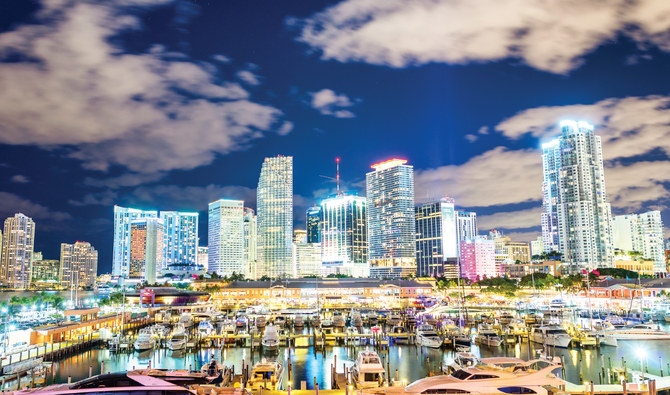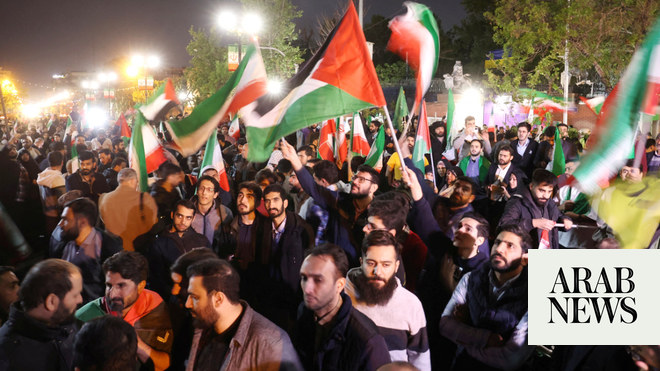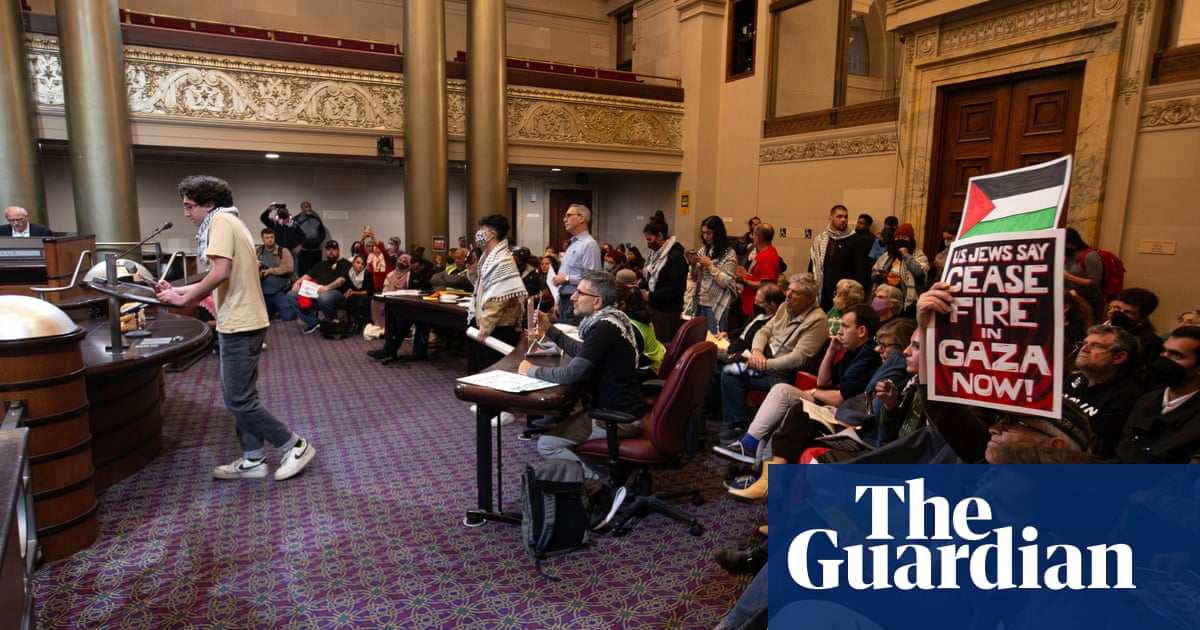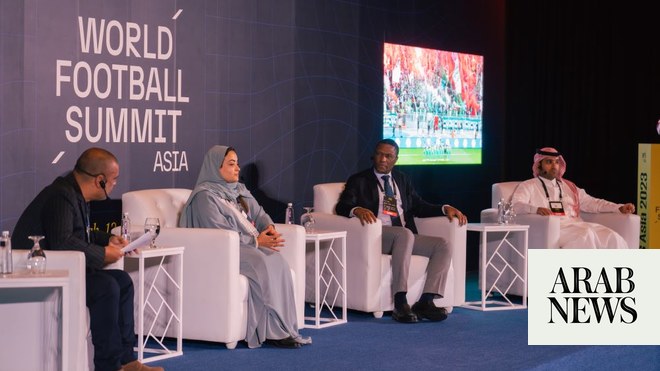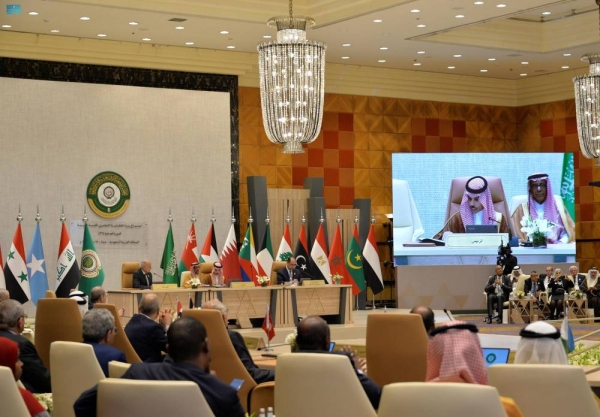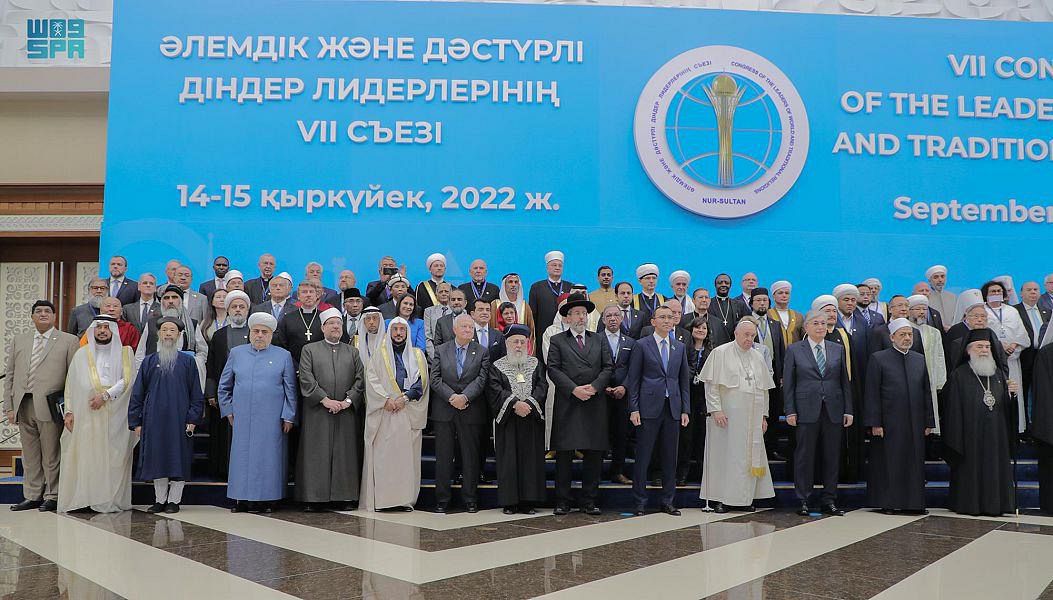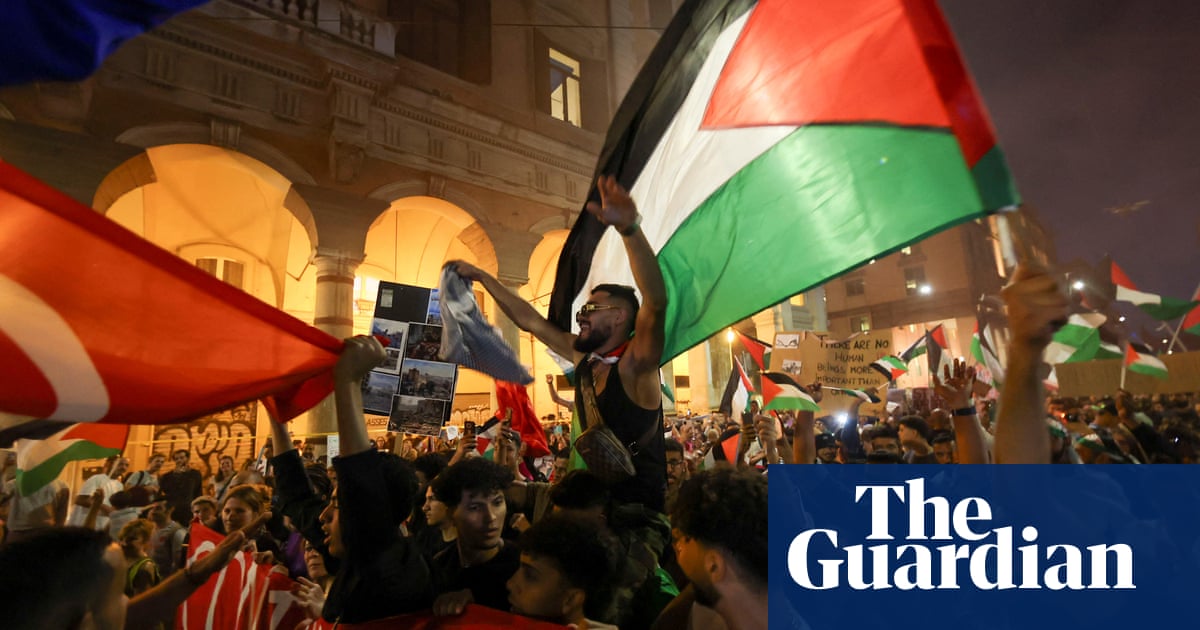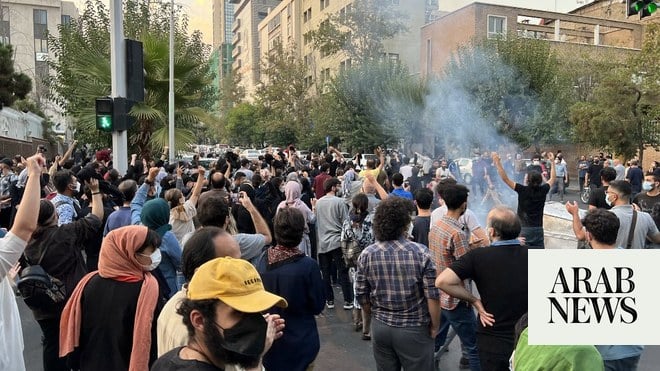
During annual summit hosted by Iranian opposition group the NCRI, prime ministers, senators and other politicians call for regime change in the country
Central fight is ‘between the people and the organized opposition seeking freedom and democracy on the one side, and the entirety of the regime on the other,’ says US secretary of state
LONDON: Current and former political leaders from across Europe and North America gathered on Monday at the annual Free Iran Summit, during which they called for regime change in the Islamic Republic. They condemned the new president and urged the international community to do more to help the Iranian people.
During the online event, organized by Iranian opposition group the National Council of Resistance of Iran (NCRI), and attended by Arab News, leaders criticized President Ebrahim Raisi’s human rights record and highlighted his direct involvement in the murders of thousands of political prisoners.
Speaking on the first day of the three-day summit, former US Secretary of State Mike Pompeo said that the Iranian Revolution of 1979 sparked several conflicts: between Iran and the US, and between the Iranian regime and Gulf and Sunni Arab states.
“But one conflict is the most important to understand, to restore Iran to its rightful place in history,” Pompeo said. “The central fight is the one in the streets, and in the mosques and in the minds of Iranians — it is the divide between the people and the organized opposition seeking freedom and democracy on the one side, and the entirety of the regime on the other.
“The regime, of course, is headed by (Supreme Leader Ali) Khamenei, Raisi and the Islamic Revolutionary Guard Corps. It is revolutionary in its zeal. It is brutal. It is theocratic. It is craven and kleptocratic.”
He highlighted in particular Iranian Foreign Minister Javad Zarif, a key figure in the regime who he said “wears a Western suit” and “speaks English with a smile but he is a terrorist who would kill his own people to save the regime.”
Pompeo added that the weight of international economic sanctions has left the regime “at its weakest point in decades,” and that the record-low turnout at the presidential election in June proved how weak Tehran has become.
“This was a boycott,” he said. “Turnout was the lowest since 1979, marking a total rejection of the regime and its candidates. It was, in fact, a boycott — and the regime knows it.”
Former Belgian prime minister Guy Verhofstadt, now a member of the European Parliament and a former leader of one of the largest political parties in the EU, said: “The election of Raisi will make Iran, the region and the world a more unsafe and illiberal place.”
Raisi “hates our democratic values,” he added. “Let us not forget that he is under US sanctions over a past that includes the extrajudicial killing of thousands of political prisoners. And it will be, I think, very difficult for (US President Joe) Biden to defend a deal with a man who is regarded as a mass murderer.”
Raisi, at the time a prosecutor in Tehran, was directly involved in the “death commissions” that passed judgment on thousands of political prisoners — most of them members of opposition group the Mujahedin-e-Khalq — who were summarily executed in 1988 at the direct decree of Ayatollah Ruhollah Khomeini.
The participants in the summit included friends and relatives of some of those who were murdered. They included Maryam Rajavi, the leader of the NCRI, whose husband died at the hands of the Iranian regime.
She condemned the regime’s “religious fascism” and urged the UN and global leaders to bring Raisi and Khamenei to justice for their roles in the 1988 murders, which have been labeled “crimes against humanity” both by her and Amnesty International.
The NCRI advocates for a “democratic, secular and non-nuclear” Iran, and dozens of speakers at the conference pledged support for the group as Iran’s “government in waiting.”
More than 250 current and former politicians from North America and Europe, including the former prime ministers of Italy, Belgium, Sweden and other countries, and dozens of US senators and national security representatives, attended or spoke at the summit.
The annual event attracts the fury of Tehran, and Iranian agents attempted to bomb the Free Iran Summit that was being held in Paris in 2018. Iranian diplomat-turned-terrorist Assadollah Assadi was sentenced to 20 years in a Belgian jail for his part in the plot.
There was diplomatic drama during this year’s event: On Sunday, the Iranian Foreign Ministry summoned Slovenia’s envoy over a video address to the summit by the country’s prime minister, Janez Jansa, who also currently holds the presidency of the Council of the European Union.
In his speech, Jansa called for an independent investigation into the 1988 massacres and said: “The Iranian people deserve democracy, freedom and human rights, and should be firmly supported by the international community.”




